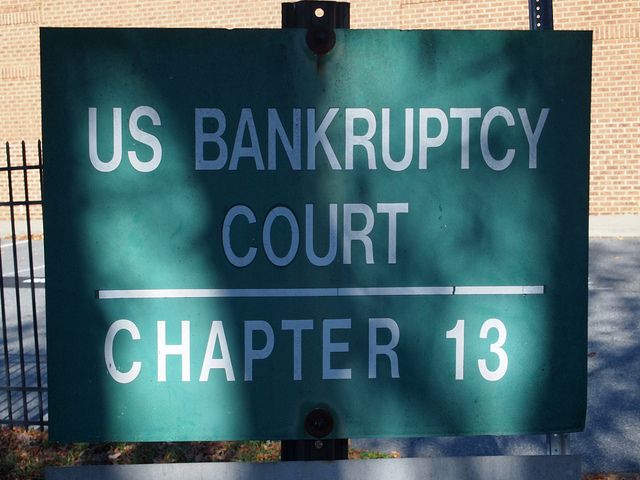(Image by Fried Dough, via Flickr.com)
When you think of bankruptcy, what words pop into your head? Failure? Broke? Bottom? The end? Humiliation?
Maybe once upon a time, but not so much anymore. While bankruptcy should never be a first choice, in some cases, it may be the only choice. Before you decide whether or not bankruptcy is right for you, we’re debunking the top five bankruptcy myths to bring you the facts.
1. Myth: All bankruptcy options are essentially the same
Fact: Not true. The three you may have heard of — Chapter 7, Chapter 11 and Chapter 13 – are very different. Many individuals file under Chapter 7, which usually allows them to erase most of their debt in a matter of months. Chapter 7 has a higher success rate and is cheaper to file than Chapter 13, which tends to take a lot longer because it requires individuals to use their disposable income to repay a percentage of their debt over a five year period. Whether you qualify for a Chapter 7 or Chapter 13 is dependent on your state’s median income. Then there’s the Chapter 11 bankruptcy, which involves the financial reorganization of a business and can take many years. To know which option is right for you, consult with a bankruptcy attorney. Most consultations are free and can give you a much clearer picture of which option is most realistic for your situation.
2. Myth: If you file, you’ll lose everything you own
Fact: This may be the most common myth, and, unfortunately, it keeps people from filing when it may be the best option for some. Bankruptcy laws vary from state to state, but all states protect certain assets, such as your house, car, retirement plan, household goods and clothing. Bankruptcy should never be the first option for dealing with overwhelming debt, but it may be the best option depending on the individual circumstances. Before deciding on bankruptcy, research and consider all of your options — from hardcore DIY budgeting, consumer credit counseling, or negotiating a settlement — bankruptcy should be your last option, but it doesn’t mean that it can’t be the right option depending on your financial situation.
3. Myth: You’ll never be able to qualify for a loan again
Fact: Nope. It’s true that filing for bankruptcy will stay on your credit report for 10 years, but it doesn’t mean you won’t ever be able to borrow or qualify for a loan again. The best way to recover from bankruptcy is jump back into the game and work at gradually rebuilding your credit — start with a secured card and manage it wisely. You’ll get credit card offers in the mail long before that 10 year mark. They will be from lenders offering cards with very high interest rates. Resist the temptation. Another tip, if you have a credit card with no balance when you file for bankruptcy, you don’t have to list it as a creditor since you owe it no money, and you might be able to keep that card after you file. Because it will cost you a lot more to borrow money after you file, if you’re planning to buy a house or a car anyway, you might want to consider your options before you file. Having said that, don’t max out all your credit cards and then file for bankruptcy. Bankruptcy judges and the trustee assigned to your case will review your purchases before you file and they very well may conclude that your attempt to file for bankruptcy constitutes fraud.
4. If you file for Chapter 7 bankruptcy, all debts are wiped clean
Fact: Dream on! Certain types of debts cannot be erased, including child support, alimony, government-issued student loans, legal settlements you’ve been ordered to pay and debts incurred as the result of fraud. This is a major issue for consumers defaulting on student loan debt and definitely an important fact to consider before opting to file.
5. Myth: If you’re married, both of you must file
Fact: This is true a lot of the time but not always. If the debt is in one spouse’s name, there is no need for both to file. In fact, in that case, they shouldn’t both file. Before you decide, consult with a bankruptcy attorney for the best advice –initial consultations are usually free and worth the time. More often than not, debt is in both their names, so both must file.
Bonus Myth: Only “losers” file for bankruptcy
Fact: Most people who file didn’t do anything risky or reckless that led to their financial mess. They file because fate has dealt them a blow – divorce, loss of a job, identity theft or a serious illness – that wreaked havoc onheir finances. Most file after months — or even years — of struggling to pay their bills and falling more and more behind. Bankruptcy is not always the answer, but for some it may be the only answer.





















